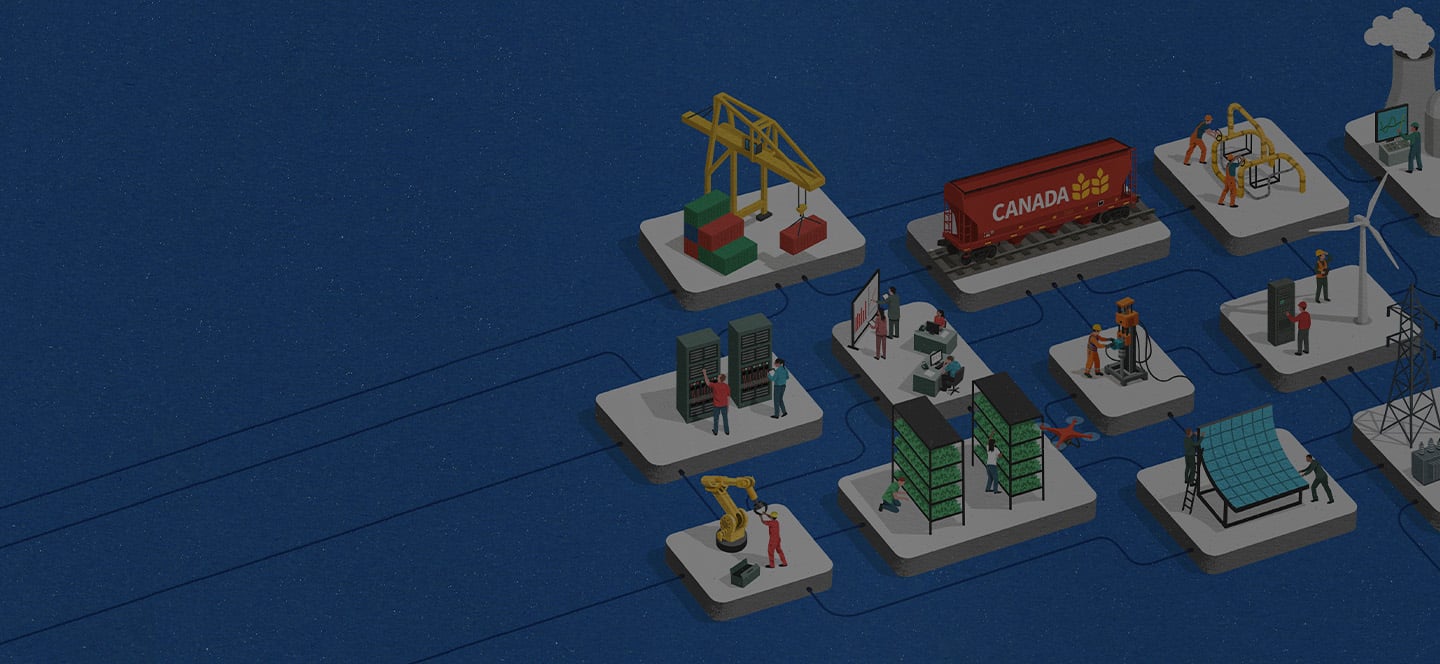The 2022 Canadian Federal Budget, released on April 7, 2022, sets the fundamental groundwork of the Government of Canada's goals for national economic development. Following Canada's announcement of its 2030 Emissions Reduction Plan on March 29, 2022, for achieving a net-zero economy by 2050, the Budget establishes a refundable investment tax credit for Carbon Capture, Utilization and Storage (CCUS) beginning in 2022. The Budget did not provide specific proposed legislation for the CCUS Tax Credit. As a result, there could be differences between the form of future proposed legislation and the Budget and such differences could be material.
The CCUS Tax Credit incentivizes the expansion of CCUS technologies to reduce emissions in high-emitting sectors. CCUS technologies constitute those innovations that capture carbon dioxide (CO2) emissions (from industrial processes, fuel combustion, or directly from air) for storage or utilization for industrial processes. The CCUS Tax Credit will offset the costs of purchase and installation for eligible equipment, and will be available to claim (as a tax credit or in the form a refund) in the year the expenses are incurred, regardless of when the equipment becomes available for use.
Applicable Tax Credit Rates
To incentivize quicker adoption of CCUS technologies, the CCUS Tax Credit is offered on a sliding scale on the cost of purchasing or installing eligible equipment incurred in a taxation year, provided that the eligible equipment is used in a CCUS project for an eligible use, all as described in more detail below. For the years 2022-30 the CCUS Tax Credit is:
- 60 percent for eligible capture equipment used in a "direct air capture project";
- 50 percent for other eligible capture equipment; and
- 37.5 percent for eligible transportation, storage and use equipment.
For the years 2031-40, the CCUS Tax Credit will be reduced to:
- 30 percent for eligible capture equipment used in a "direct air capture project";
- 25 percent for other eligible capture equipment; and
- 18.75 percent for eligible transportation, storage and use equipment.
Eligible Equipment, Eligible Projects and Eligible Uses
Eligible equipment must be used solely to capture, transport, store or use CO2 in Canada and be part of an "eligible CCUS project." An eligible project captures CO2 either directly from, or before release to the atmosphere, which must then compress, transport and use the captured CO2 for an "eligible use." Projects that reduce emissions to achieve legislative compliance, such as the Regulations Limiting Carbon Dioxide Emissions from Natural Gas-fired Generation of Electricity, are not considered as eligible CCUS projects. Pre-development costs for a CCUS project (e.g., feasibility studies, engineering and design studies) and ordinary operating costs are not eligible expenses that qualify for the CCUS Credit.
The "eligible use" initially includes dedicated geological storage or storage in concrete. Qualified dedicated geological storage applies to those jurisdictions determined to have sufficient regulations for ensuring permanent CO2 storage. To date, qualified dedicated geological storage is limited to Alberta and Saskatchewan. For storage in concrete, the process must have federal approval and must demonstrate that at least 60 percent of the CO2 is mineralized and locked into the concrete.
Notably, use of CO2 for enhanced oil recovery is not an eligible use and puts Canada at a competitive disadvantage with the United States (which permits a tax credit for CO2 used for enhanced oil recovery). If the project includes eligible and ineligible uses, the CCUS Tax Credit is reduced proportionately to the CO2 expected for ineligible uses over the project lifecycle.
New Capital Cost Allowance Classes
Further, the Budget outlines four new capital cost allowance (CCA) classes that will be enacted in combination with the CCUS Tax Credit. The first will include an eight percent CCA rate for: capture equipment, including processing and compression equipment; transportation equipment, including pipelines and dedicated vehicles for transporting CO2; and storage equipment including injection and storage equipment. The second will be a 20 percent CCA rate for equipment required for using CO2 in an "eligible use."
Although intangible exploration and development expenses associated with storing CO2 will not be eligible for the CCUS Tax Credit, two new CCA classes will be established for these expenses, providing a 100 percent CCA rate for exploration expenses, and a 30 percent CCA rate for development expenses.
Claiming the CCUS Tax Credit and Clawback Features
The CCUS Tax Credit can be claimed in the taxation year that the cost for the eligible equipment is incurred even if that is prior to the eligible equipment being available for use (but subject to an annual verification as described below). It should also be stressed that the CCUS Tax Credit is being structured so that it is refundable to the owner of the eligible equipment. Government incentives, including tax credits, can in some analogous circumstances reduce the balances of CCA pools that relate to the expenditure (or potentially be included income). The Budget does not address how, if at all, the CCUS Tax Credit will interact with the new CCA classes. However, we would expect that this will be addressed at a later date.
We would also note that the CCUS Tax Credit has certain transferability restrictions—namely, that a subsequent purchaser of eligible equipment cannot claim the CCUS Tax Credit if the credit has already been claimed by a previous owner. It is expected that this issue will be dealt with by due diligence, contractual representations and covenants (e.g., a vendor may covenant not to claim the CCUS Tax Credit such that it could be available to a subsequent purchaser).
The Government will assess all eligible projects at 5-year intervals to a maximum of 20 years and will clawback the CCUS Tax Credit as warranted if more than 5 percent of the CO2 goes to an ineligible use over the initial projection. The Budget states that the design features of the clawback will be released at a later date.
Validation, Verification and Other Administrative Requirements
Projects expected to have eligible expenses exceeding $100 million over the project lifecycle will require an initial project tax assessment to identify the expenses eligible for the CCUS Tax Credit based on the proposed project's design. Eligible expenses will further need to be verified after the end of the taxation year in which the expenses are incurred by Natural Resources Canada prior to claiming the CCUS Tax Credit amounts.
Additionally, taxpayers interested in claiming the CCUS Tax Credit must produce a climate-related financial disclosure report, which highlights how their corporate governance, strategies, policies and practices will help manage climate-related risks and opportunities and contribute to achieving Canada's commitments under the Paris Agreement, and Canada's goal of net zero emissions by 2050.
CCUS projects expected to have eligible expenses of $250 million or greater over the life of the project will also be required to contribute to public knowledge sharing in order to be eligible for the credit.
Conclusion
Many details remain outstanding and draft legislation implementing these proposals is pending, and will come into force and apply to eligible expenses incurred in 2022 and before 2041. The applicability of the initial proposed legislation appears somewhat limited, due to the current restricted "eligible use" categories and dedicated geological storage currently only qualified in Alberta and Saskatchewan. However, the CCUS Tax Credit represents a significant opportunity for high-emitting businesses that have limited technologies to implement for meeting annually increasing federal emissions standards, such as in the oil and gas sector.
Bennett Jones has experience in infrastructure project development including extensive CCUS experience, climate change and emissions trading and developing strategies for industry to capitalize on current and upcoming initiatives of a low-carbon economy.
If you have any questions about the potential impact of the CCUS Carbon Tax Credit, contact any member of the Bennett Jones Tax or Energy Practice Groups.

















